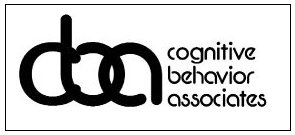WHAT IS ADULT ADHD?
Adult Attention Deficit Hyperactivity Disorder (Adult ADHD) is a diagnosis that is valid and often starts in childhood. Even when treated during childhood, the symptoms often continue as adults. The primary symptoms are of three types:
- Poor Attention (e.g. easily distracted, interrupts in conversations, acting before thinking, difficulty waiting one’s turn)
- High rate of acting impulsively
- And hyperactivity
These symptoms often result in problems with work, education and socializing.
How common is Adult ADHD?
The estimates of how many adults suffer from Adult ADHD vary from 1-5%. The symptoms are similar to what we see in children and adolescents. It appears to equally effect across genders. Although these types of problems may appear in many adults at various times. Many people who do not meet the diagnosis may also have occasional problems with distraction and organizing, we only diagnose this as a disorder when it results in problems in social, academic or work functions.
What is the Cognitive Behavioral Approach to treating Adult ADHD?
The first line of treatment for persons with a valid diagnosis is generally medication. These medications are generally known as psychostimulants. They are frequently recommended as part of a Cognitive Behavioral Therapy program. Therapists doing CBT for Adult ADHD help the client to be consistent with their medications. The medication treatment is only partially effective, with 20-50% of patients not responding and/or only seeing a less than ½ reduction of symptoms. Even though medications may help with some of the symptoms, they do not teach clients skills and how to make use of other strategies to deal with their inabilities. CBT that is focused on helping people to develop skills and/or find ways around their difficulties has been shown to have higher success rates than medications alone. These studies have shown that CBT for Adult ADHD is an acceptable and often effective next step treatment.
CBT for Adult ADHD
Cognitive Behavioral Treatment for Adult ADHD generally involves the following:
Thought (Cognitive) component
Often people with ADHD are thinking about their impairments in ways that are non-productive, inaccurate and unhelpful. Helping clients to identify what they are saying to themselves about their difficulties can result in decreased anxiety, depression and increased self confidence. The therapists help the client to have increased awareness of these thoughts. After, they learn how to replace them with more adaptive thinking. For example, many people with ADHD have either been labeled or have thought of themselves as “lazy” as opposed to having difficulties with certain skills. Seeing oneself as “lazy” has a terrible effect on how the person sees themselves. This also effects their ability to overcome the difficulties they are experiencing.
Behavioral components
This part of the treatment addresses the difficulties adults with ADHD have in organizing and planning. Using a patient workbook, we help sufferers to learn to use calendars both digital and paper. We also teach how to use a task list (“to do”). In addition, they are taught a system to prioritize and effectively approach their tasks. E.g. breaking them down into smaller bits. They are encouraged to look at alternate solutions by looking at pros and cons of various other strategies. Another part of the treatment is to help clients to develop systems for the huge amount of material that they receive. Helping them to keep this material in a simple and functional way often is helpful.
Attentional component
Distractibility is very common in people with ADHD. In this part of the treatment we will work on increasing a person’s attention span using mindfulness based cognitive therapy. This often involves teaching the person some basic meditation skills. People with ADHD often believe that this is next to impossible for them. We show them in little steps how to improve. One of the leaders in this area, Jon Kabat-Zinn, was asked at a lecture whether mindfulness approaches would be helpful to people with ADHD. He answered with “and what is the first word in the diagnosis, ATTENTION”—As meditation practice is very much about knowing where your mind is and focusing, of course, it would be helpful.
We also advise clients about how to arrange their environments to decrease distraction. The use of cues, timers, reminders, etc are other strategies to compensate for their difficulties with attention

